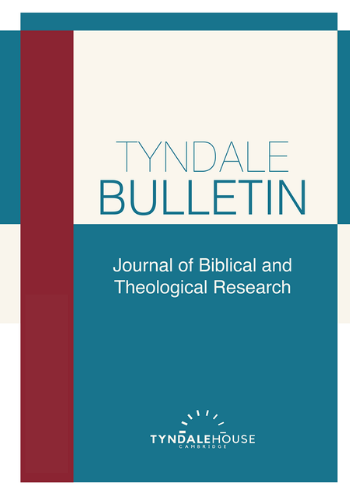많은 이들은 출애굽기 19장 3-6절이 이스라엘과 하나님의 독특한 관계(5ab절) 및 세상의 다른 민족들에 대한 이스라엘의 특별한 역할과 책임(6절)을 제시한다고 본다. 이는 중요한 질문을 제기한다: 이스라엘을 선택하는 것이 하나님의 주된 우선순위였는가, 아니면 처음부터 온 세상을 구속하려는 더 넓은 목적의 일부로서 이스라엘을 선택했는가? 본 논문은 히브리어 분사 '키'(כי)로 시작되는 5c절의 번역이 이 논의와 관련이 있다고 주장한다. 구약 전체에서 '키'의 용법이라는 맥락에서, 본 논문은 출애굽기 19장 5c절 '키' 절의 주된 해석들—즉 강조적, 원인적, 양보적, 설명적 용법—을 논한다. 결론적으로 본 논문은 원인적(causal) 이해를 지지하며, 이러한 이해가 구약의 선교 신학을 파악하는 데 미치는 함의를 지적한다.
Many take Exodus 19:3-6 to set out the uniqueness of Israel’s relationship with God(v. 5ab) and the particular role and responsibility Israel has in relation to the rest of the world (v. 6). This raises an important question. Was choosing Israel God’s main priority, or was his intention, from the start, to redeem the whole world, with the choice of Israel part of that wider purpose? This article argues that the translation of the clause in verse 5c, introduced by the Hebrew particle יִּּכ (ki), is relevant to that discussion. In the context of the use of יִּּכ in the wider OT, it discusses the main interpretations of the יִּּכ clause in Exodus 19:5c – asseverative, causal, concessive, and explanatory. It concludes in favour of a causal understanding and points to the implications for an understanding of the mission theology of the OT.







